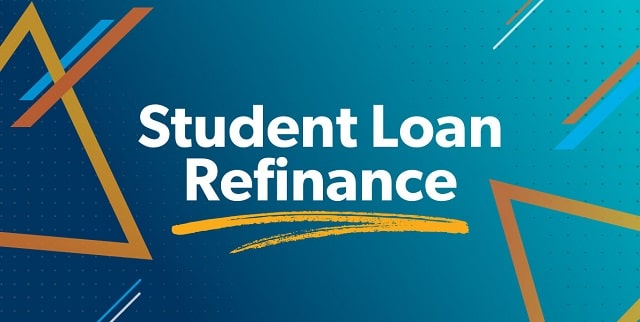
People are refinancing their debt all the time. If you are one of the approximately 45 million U.S. adults carrying student loans, you might be wondering if this makes sense for you as well. These are some things to know before refinancing your student loans.
Do You Know What It Really Means To Refinance Student Loans?
While this might be an obvious answer to some people, fully understanding what you’re getting into is essential before you refinance your student loans. So, what is refinancing student loans? Believe it or not, the process itself is actually quite straightforward. The difficult part is deciding whether a student loan refinance is the right choice for you.
When you refinance your student loans, or any kind of loan, you’re essentially taking out a new loan to replace your old one. There are several reasons why it makes sense to do this, which will be discussed in the next section. Generally, the purpose of refinancing is to improve your debt situation.
It’s important to note off the bat that there are some substantial differences between refinancing and consolidating in the realm of student loans. Typically, the only material difference between refinancing and consolidating is that a refinance is replacing one loan, while consolidation bundles several old loans into a single new one.
With most kinds of debt, the processes and outcomes for refinancing and consolidation are also pretty equivalent. Student loans, however, due to the fact most originate with the federal government, work a bit differently. While you can consolidate with a private or federal lender, you can only refinance to a private loan. There are a few ways this can influence whether you decide refinancing student loans is the best move in your position.
What Are The Benefits Of Refinancing Student Loans?
Now that you have the basic idea of what it means to do a student loan refinance, the next thing to think about is some of the benefits. These are the main reasons why it makes sense for consumers to go ahead with refinancing student loans:
- Lower Interest Rates
The interest rate of a loan is generally going to be just about the most important aspect. A high or low rate can determine whether you will or won’t pay back hundreds or thousands of additional dollars over the course of a loan. Refinancing allows you to take out a loan with a lower interest rate, which can save you bundles.
- You Can Find The Best Rates Easily
In some situations, it can be difficult to find the best rate on refinancing. With student loans, however, Juno makes it an easy process. Since they’re not a lender themselves, Juno simply offers consumers the best loan deals out there that they’ve selected from a huge body of lenders looking to book their business. This allows you to get the ideal refinance without having to do a bunch of extra work.
- Change The Repayment Term
They term of a loan strongly affects how much you pay back over time. Shorter-term loans usually carry a lower interest rate, which means you’ll pay back less over time. While longer-term loans often have higher rates, spreading out your repayment can lower your monthly bill. The great thing about refinancing is that you get to choose what works best.
These are some of the clear benefits to refinancing your student loans. But there are several other things you need to think about as well.

What Are The Drawbacks Of Refinancing Student Loans?
If refinancing student loans only came with benefits, everyone would be doing it. Of course, there are some potential drawbacks to consider before going forward with a student loan refinance.
Circling back to what was said earlier about refinancing only being offered through private lenders, this can be a big problem for those who intend to utilize their federal loan benefits. This includes things like specialized income-driven repayment plans, loan forgiveness, and other features. For those who think they’ll need to make the most of these programs, it’s probably best to not refinance. Although, those who have certain federal loans might still want to consider a refinance if it will lower your interest rate significantly enough—especially those with Direct PLUS Loans.
Additionally, the fact that refinancing has to be done through a private lender means you will have to prove a certain level of creditworthiness. Those who can’t show sufficient credit and income might have to get a co-signer. While this still allows you to refinance, it can complicate things, particularly if the primary borrower of a student loan is unable to pay their bills at some point.
Conclusion
Overall, there are many reasons why it can make sense to refinance student loans. Taking the time to analyze all the information available to you will help college students and graduates make a more informed financial decision.
